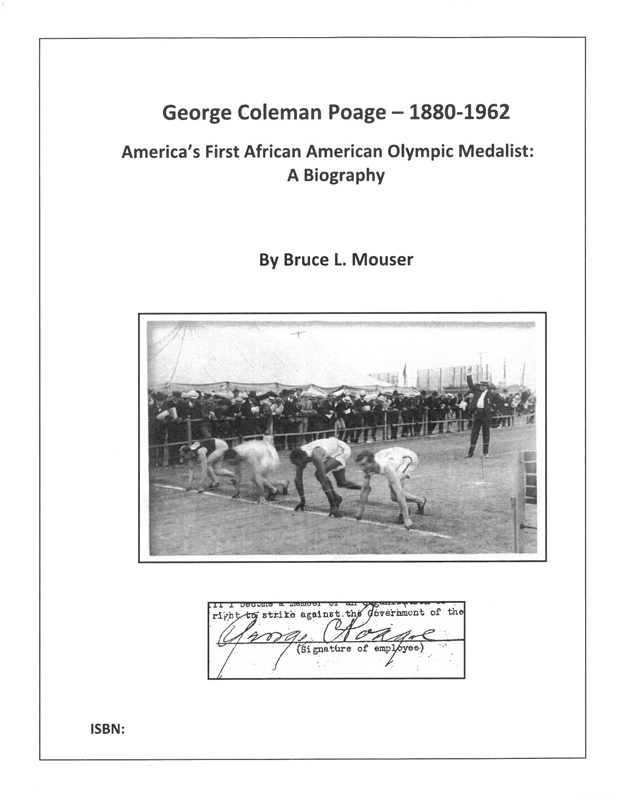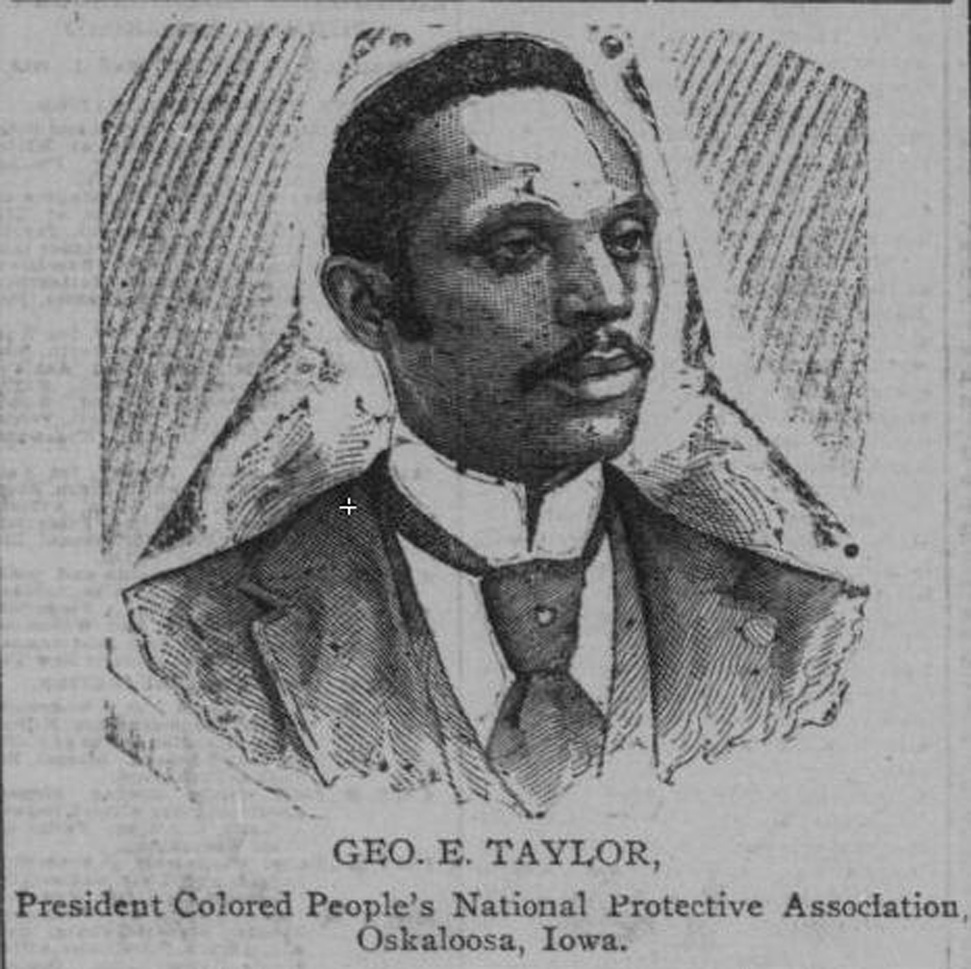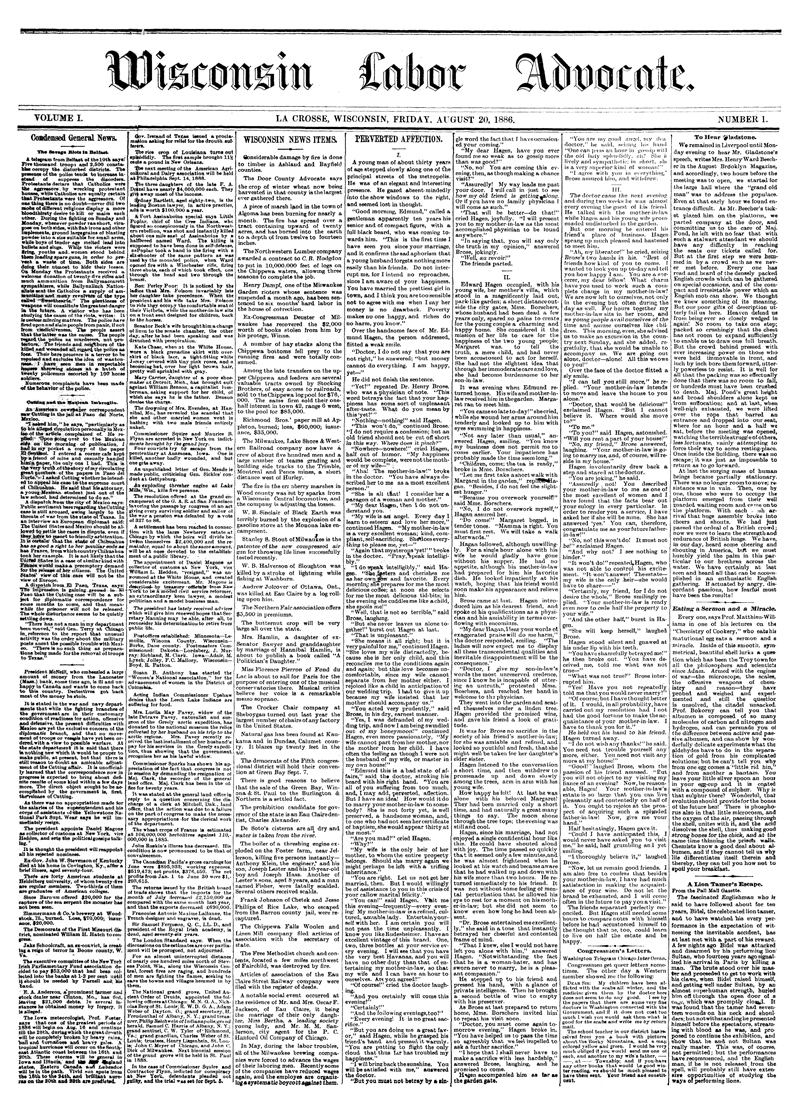Immigrants & Migrants
Resources
—Black Americans—
Creator:
Jennifer DeRocher
Description:
A study on racist attitudes in La Crosse, Wisconsin, that have historical roots but continue into the present time (2016). DeRocher argues that, "...after 1890, select white residents used strategies to make the city of La Crosse dominantly white. Behaviors and attitudes that fueled this can be seen in La Crosse newspaper articles, oral histories, Black migration rates and population disparities." DeRocher uses the framework outlined in James W. Loewen's book "Sundown Towns: A Hidden Dimension of American Racism" in her paper.
Capstone project for History 490, University of Wisconsin-La Crosse
Capstone project for History 490, University of Wisconsin-La Crosse
Author:
La Crosse County Historical Society (La Crosse, Wis.)
Creator:
Mouser, Bruce L.
Description:
Between 1850 and 1906, La Crosse, Wisconsin, was typical of Mississippi River towns that received waves of Black settlers who followed the promise of an expanding frontier and available paths to that frontier. This work on Black La Crosse provides biographical sketches of recorded heads-of-household and families that lived in La Crosse during this half-century and presents data in comparative forms respecting residence, occupation, and personal information for all known persons of African decent who lived in La Crosse before 1906 and a narrative analysis of that data. The author also includes reproductions of three articles respecting La Crosse's Black experience, written for and published by the La Crosse County Historical Society in its magazine, Past, Present, & Future.
Creator:
Miller, Ronald Frank
Description:
The intent of this study was to examine the perception of African American students' experiences at the University of Wisconsin - La Crosse. This was a descriptive study attempting to identify students' perception of the campus environment, including student services, faculty and staff, and the La Crosse community.
UW-L Seminar Paper
UW-L Seminar Paper
Author:
Bruce L. Mouser
Creator:
Bruce L. Mouser
Description:
Mouser follows Black Olympian George Poage's extraordinary life from Hannibal, Missouri, to La Crosse and Madison, Wisconsin, to St. Louis, Missouri, finally settling permanently in Chicago, Illinois. Poage excelled in the classroom until his attention turned to athletics.
Author:
University of Wisconsin-La Crosse
Creator:
Mouser, Bruce L.
Description:
An early paper about Olympian George Coleman Poage and his formative years growing up in La Crosse, Wisconsin, presented to the North American Society of Sport History Annual Meeting, May 25, 1985, by Bruce L. Mouser and Edwin L. Hill of the University of Wisconsin-La Crosse..
Description:
Taylor was born in Little Rock, Arkansas, in August 1857, to Amanda Hines, a free black woman. Taylor later reported that his father was Nathan Taylor, a slave. Hines was forced to leave Arkansas in 1859 as a consequence of a new law which required all free blacks to leave the state by 1 January 1860 or be sold as slaves. Hines died in Alton, Illinois, in 1861 or 1862, and young George was forced to live in “dry goods boxes†and fend for himself.
In 1865 when he arrived in La Crosse, Wisconsin, onboard the “Hawkeye State,†a side-paddle vessel then operating on the upper Mississippi River. Taylor lived in La Crosse only one or two years, after which he was “bound out†to Nathan Smith of rural West Salem where he lived until he reached the age of 20 years. He attended Wayland University in Beaver Dam from 1877 to 1879, after which he settled in La Crosse and in the employ of Marcus “Brick†Pomeroy, editor of Pomeroy’s Democrat. From 1880 to 1885, Taylor wrote for several local papers and contributed articles to the Chicago Inter Ocean. In 1885, he was the editor of a newspaper supported financially by Frank “White Beaver†Powell, and eventually became an important player in Powell’s first two terms as mayor of La Crosse.
Lastly, In 1886 and 1887, Taylor became a crucial figure and office holder in Wisconsin’s People’s Party and then its Union Labor Party. His Wisconsin Labor Advocate was the voice of Wisconsin’s labor party in 1886-1887. From 1891 to 1910, Taylor lived in Oskaloosa and Ottumwa, Iowa, where he published a national magazine called the Negro Solicitor. During this period he rose to prominence in national black politics, acting as president of the National Colored Men’s Protective Association and the National Negro Democratic League and served high office in various other black organizations. In 1904, Taylor was selected to lead the ticket of the National Negro Liberty Party for the office of president of the United States. From 1910 to 1925, Taylor retreated from the national stage and lived an active life in Jacksonville, Florida.
Library guide created by UWL, Murphy Library that contains links to primary as well as secondary sources
Library guide created by UWL, Murphy Library that contains links to primary as well as secondary sources
Author:
Discover Wisconsin
Creator:
University of Wisconsin Foundation
Description:
This video production features George Coleman Poage (1880-1962), who grew up in La Crosse, WI. Poage's parents worked for prominent white families of La Crosse and his mom ensured that he received a good education. He graduated at the top of his class from a La Crosse high school and was an excellent track runner. He went on to study history and run track for the University of Wisconsin-Madison. Shortly afterwards, he represented the Milwaukee Athletic Club at the 1904 St. Louis Games and became the first African American Olympic medalist.
Creator:
Bellamy, Everett
Description:
The purpose of this study was to determine nonintellectual and attitudinal variables involved in the high attrition rate of black students at the University of Wisconsin-LaCrosse. A questionnaire was mailed to all Black American undergraduate students and a random sample of 200 non-black undergraduates enrolled at the university fall semester, 1974, to collect biographical and attitudinal data. The total number included in the study was 34 black students and 28 non-black. The subjects were divided into four groups: black returnees, black nonreturnees, non-black nonreturnees, non-black returnees. The data obtained were tabulated and a total tally and percentages were computed for the biographical information. T-test for independent means were computed to determine if significant attitudinal differences existed between the four groups. The results indicated some significant biographical differences exist between black returnees and black non-returnees. However, no significant attitudinal differences were found between the two groups. Statistically significant differences were noted for 13 of the 21 attitudinal items when comparing black students with non-black students.
Subject
UW-L Seminar Paper
UW-L Seminar Paper
Author:
University of Wisconsin-La Crosse Oral History Program
Description:
Brenda Lauderdale was born in Alabama, but spent most of her childhood in the Chicago area. She came to La Crosse for college. Lauderdale mostly discusses growing up in housing projects in Chicago in the 1950s and her family life. In 1975, Lauderdale enrolled in UWL, and some of her interview focuses on anti-Black racism and discrimination in La Crosse and at UWL.
Tape 2
Tape 2
Author:
University of Wisconsin-La Crosse Oral History Program
Description:
Van Loon discusses her ancestors' 1856 emigration from the Netherlands to Wisconsin, where they settled in New Amsterdam. She focuses on her father, John Van Loon, and also discusses general family life and her childhood growing up on a farm in La Crosse, Wisconsin. Topics also discussed include but are not limited to: ancestry, immigration from Holland, LaFleur family, New Amsterdam, Native Americans, Presbyterian Church, marriage and work, Childhood memories, diseases, Joseph Losey, her childhood home, her parents railroad tramps, birthday celebrations, farm animals, Christmas celebrations, farming and harvesting, education, Perkins family, Black Americans, childhood games, bluff hiking, agricultural and horticultural societies, traffic concerns with horses and cars, horse races, bird watching, food and cooking, farm labor, as well as local newspapers papers.
Warning, some bits of this recording has sound issues and the audio is incomprehensible.
Tape 2
Tape 3
Tape 4
Tape 5
Warning, some bits of this recording has sound issues and the audio is incomprehensible.
Tape 2
Tape 3
Tape 4
Tape 5
Creator:
McLoone, Robert M.
Description:
This paper was intended to determine whether or not the problems of discrimination and lack of social activities are perceived by Black students on the WSU-La Crosse campus. The findings in this study were supoorted by related studies, as well as by writings of various Black educators and students. The subjects for the study were the 44 Black students on La Crosse campus during the 1971 Spring Semester. A questionnaire was used to obtain the data. It contained forced choice, multiple choice, and open-ended questions. The thirty-nine questions were designed to acquire data on personal background and on social and academic lives of Blacks at this university. After the data were gathered, the responses were tabulated, and percentages of students responding to each alternative on the questionnaire were computed. The results of the study indicate that discrimination is perceived by Blacks and that their social activities are also somewhat impaired. The results, however, are tenuous because of the small number who responded to the questionnaire.
UW-L Seminar Paper
UW-L Seminar Paper
Author:
University of Wisconsin-La Crosse
Creator:
Henry, Philip N.
Description:
A seminar paper for a masters of science. The intent of this study was to examine the attitudes of black students at the University of Wisconsin-La Crosse toward student activities. The investigation was conducted during the spring semester of the 1975-76 academic year.
Author:
Geo. E. Taylor & Co.
Creator:
Taylor, George E.
Description:
This collection includes the newspaper and its transcriptions. The Wisconsin Labor Advocate was a newspaper published in La Crosse in 1886-1887 with political and financial backing from Dr. D. Frank "White Beaver" Powell. La Crosse was a hotbed of Labor political party activity in the 1880s and the Wisconsin Labor Advocate was one of at least four La Crosse area Labor-related newspapers from that time. What makes the Wisconsin Labor Advocate unique was its editor and owner: George Edwin Taylor. Taylor was an African-American, born in Arkansas in 1857. As a black business owner, he was an anomaly in La Crosse, Wisconsin, in the 1880s. Taylor got his start in publishing working at other La Crosse newspapers. He also became increasingly interested in politics as reflected in his editorship of the Wisconsin Labor Advocate. The last existing edition of the paper dates from August 6, 1887 and George Edwin Taylor left La Crosse soon afterwards. He maintained a life-long interest in politics and by 1904 had become involved in an all African-American political party called the National Liberty Party. Taylor accepted the nomination of that party in 1904 as its candidate for the office of the U.S. President. In doing so, Taylor was the first candidate of a national African-American party for the U.S. presidency.


